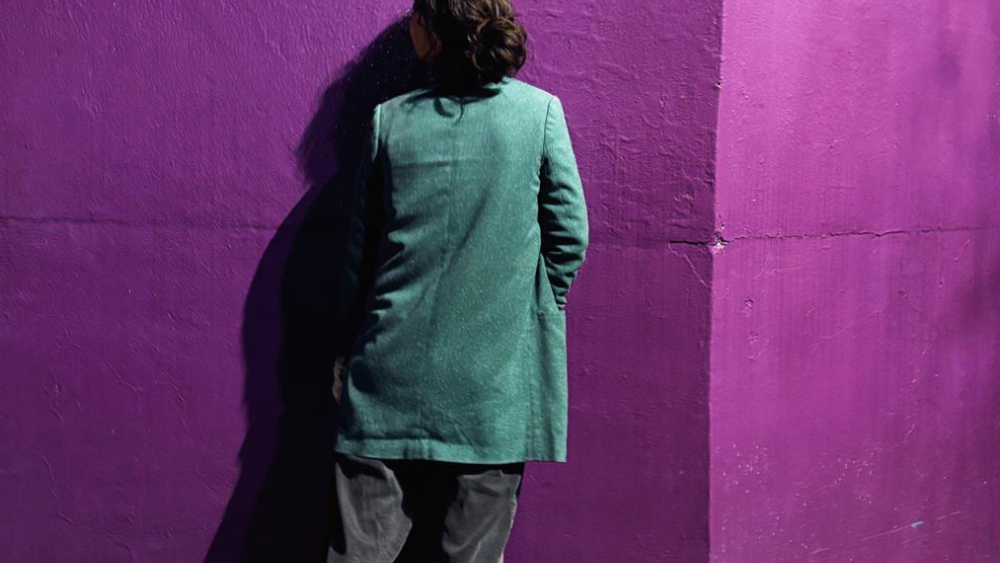Copyright Variety

Ana Elena Tejera’s “Culebra Cut,” Theo Montoya’s “False Positive” and Roxana Stroe’s “Houses Are Silent” feature among the lineup at the upcoming Proyecta co-production platform, running during early December’s Ventana Sur 2025 in Buenos Aires. Now on its 8th edition, Proyecta — a joint initiative between Ventana Sur, Cannes’ Marché du Film and the San Sebastián Film Festival — showcases 12 new features, all first or second films, confirming its reputation as one of Latin America’s key gateways to Europe. Among this year’s highlights, “Culebra Cut” unites Panama’s Mestizo, France’s Fulgurance and Capicua Films from Chile in one of the strongest international alliances of the selection. The project has just added Arte France Cinéma as a co-producer, following a path that already includes selection for the Torino Feature Lab, Venice Production Bridge and Ibermedia support. “False Positive” marks a step-up for Theo Montoya, building on the success of his award-winning doc hybrid “Anhell69.” His company Desvío Visual leads a four-country co-production with Parcelles Films in France, Spain’s Amore and Netherlands’ Baldr. Backed by Cannes Cinéfondation and Rotterdam’s Hubert Bals Fund, the project arrives in Buenos Aires with festival buzz and strong market momentum. “Houses Are Silent,” which earned its Ventana Sur invitation at San Sebastián’s Europe–Latin America Co-Production Forum, extends Bucharest-based Atelier de Film’s reach through a Romania–Bolivia partnership. Gabi Suciu’s company has produced San Sebastián Golden Shell 2021 winner “Blue Moon,” and Cannes Directors’ Fortnight player “When Night Meets Dawn.” Running Dec. 1-5, this year’s Ventana Sur will see Proyecta filmmakers tackle political ghosts, ecological loss and personal reinvention. Several projects blend hybrid aesthetics — animation, performance, archival material — with a storytelling precision aimed at both festivals and buyers. Proyecta also offers incentives designed to fast-track production and visibility. The San Sebastián Film Festival Invitation grants two producers accreditation, accommodation and access to the festival’s industry activities. The Sideral Cinema Award ensures a €10,000 ($11,634) pre-buy for one project’s international rights, while the Sørfond Pitching Forum Award will take one producer to Norway’s 2026 Sørfond Pitching Forum, with travel and accommodation covered. The 2025 Proyecta projects selection: “The Boa and the Bamboo” (Maitane Carballo Alonso; Spain, Switzerland) Set deep in Brazil’s Maranhão region, the film follows an Awá-Guajá couple who adopt an orphaned monkey as sacred kin while their forest is devoured by industry. Drawing on Indigenous cosmology and blending animation with oral storytelling, it explores resilience amid ecological collapse. Produced by the Basque Country’s Gariza Films (“20,000 Species of Bees”) in collaboration with Swiss company MediaFisch, the project played at San Sebastián’s Europe–Latin America Co-Production Forum 2025. “Culebra Cut” (“Corte Culebra,” Ana Elena Tejera; Panama, France, Chile) Tejera reimagines Panama’s hidden history through a feverish odyssey in the former U.S. Canal Zone, where ghosts of the displaced linger in the jungle. With Arte France Cinéma now on board, the project is also backed by CNC, Ibermedia and the World Cinema Fund. Chile’s Capicua Films has joined as a minority partner. Tejera’s camera drifts between the political and the dreamlike. “The film moves through low-lit spaces where latent violence rubs against tenderness,” she notes. “False Positive” (“Falso Positivo,” Theo Montoya; Colombia, France, Spain, Netherlands) Following the acclaimed “Anhell69,” Montoya delves into Colombia’s darkest chapter with a poetic reconstruction of the “false positives” killings. Produced by Desvío Visual with Parcelles, Amore and Baldr, the film blends memory, mourning and surrealism. “I don’t want to tell what we already know. I want the audience to feel what still hasn’t been understood,” Montoya says. Supported by the Cannes Film festival’s Cinéfondation residency program and the Hubert Bals Fund. “God’s Favorite Girl” (Diego Ulloa Alvear; Spain, Ecuador) A 16-year-old girl invents Marian apparitions to cope with her parents’ divorce — only to trigger a nationwide religious frenzy. The dark comedy marks a further international step for Spain’s Funicular Films, the label behind acclaimed series “This Is Not Sweden.” Co-produced with Abaca Films in Ecuador, it won top honors at ESCAC Opera Prima Lab and Guadalajara’s BDC Award. “A satire about faith, fame and the absurdity of modern belief,” says producer Marta Baldó. “Goodbye, Boys” (“Adeus, meninos,” Sacha Amaral; Brazil, Portugal) Described as a lyrical journey through fractured childhood, Amaral’s debut follows two brothers navigating unstable homes after their mother’s death. Developed at the Sam Spiegel Film Lab in Venice, the project blends social realism with visual poetry and, its makers say, an emotional precision. “I’m drawn to explore the justice of childhood, how kids perceive cruelty and affection,” Amaral says. Co-produced by Brazil’s Quadrophenia Films and Portugal’s Crim. “Hermosa no es como antes” (Kattia G. Zúñiga; Costa Rica, Chile) A second Costa Rican project, in which Paz feels the heat of the tropics, perimenopause and contained anger — all at once. That inner fire pushes her to dance, shout and set boundaries in her life and in the privileged beach community she inhabits, a beautiful place stifled by tourism. Presented at Cinélatino Toulouse under the title “Rabiosa” and at Tres Puertos Panamá, the project has backing from both Costa Rican and Chilean cultural funds. “Houses Are Silent” (Roxana Stroe; Romania, Bolivia) In a secluded Bolivian Mennonite colony, a 16-year-old girl becomes pregnant after an assault she can barely recall. Developed by Atelier de Film, the project won its Ventana Sur invitation at the San Sebastián’s Europe–Latin America Co-Production Forum. “Silence can protect tradition but also hide pain,” Stroe says. “Love & Rebellion” (Sarah Miro Fischer; Germany, Colombia) In Colombia, an 18-year-old visits her estranged mother — a former guerrilla turned bride-to-be — hoping to find a revolutionary heroine but instead encounters silence, regret and love unspoken. Produced by Unafilm in Germany, the film explores the spaces between memory and myth, fear and responsibility, and what it means to grow up in the shadow of unfinished ideals, its backers say. “The Lovers Who Didn’t Know Too Much” (“Los amantes que no sabían demasiado,” Baltasar Albrecht, Gastón del Porto; Argentina) A Paraná River trip turns fatal when a body falls onto a couple’s boat, pulling them into a spiral of guilt and obsession. Produced by MuchaSiesta with El Cielo Cine, and backed by the Argentine INCAA’s 2024 Feature Award, the project is “a love letter to ’70s genre films — an auteur thriller built over curiosity, coincidence and danger,” says producer Arturo Castro Godoy. “Michael M.” (Laura Bierbrauer; Germany, Argentina) Two souls separated by time — a 1930s exiled writer and a modern artist — find each other through a book that transcends eras, interlacing memory and imagination in a reflection on exile, creativity and longing. The film extends Nabis Film Berlin’s cross-continental mission, joining producers Iris Janssen, Lukas Valenta Rinner and Yael Svoboda. Supported by Germany’s BKM Fund. “The Other Voice” (“La otra voz,” Agustina Pérez Rial; Argentina, Spain, France) Drawing from an unseen private archive, the film crafts an intimate portrait of Mercedes Sosa, Latin America’s legendary protest singer. Letters and photographs from her exile years reveal a woman caught between fame and displacement. Co-produced by Gaman Cine, Fiørd Studio and Lorolo and supported by the IDFA Bertha Fund. “Spells to Revive a Witch” (“Hechizos para revivir una bruja,” Natalia Solórzano Vásquez; Costa Rica) A casting call to portray a 1960s fortune teller turns into a ritual of remembrance in Solórzano’s debut. The film explores how women reclaim erased histories through reenactment and imagination. Supported by the Costa Rican Film Fund, DocLisboa’s Arché and the Rueda Residency, it reflects Sputnik Films’ focus on hybrid, auteur-driven cinema. Producer Mariana Murillo calls it “a film about memory as performance — where remembering itself becomes a political gesture.”



